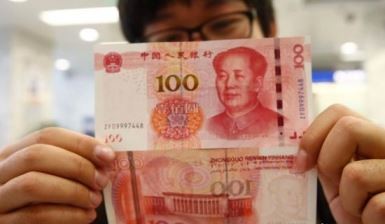As the United States commenced its new rate hike cycle and investors are starting to adjust, China is eyeing to maintain yuan stability, the Xinhua News Agency reported.
On Dec. 16, the U.S. Federal Reserve has increased its benchmark interest rate from 0.25 to 0.5 percent, the first rate hike in almost a decade. Though this was welcomed in the U.S., the move, which marks an end to the central bank's monetary easing measures, has posed challenges for emerging market economies including China.
As more rate hikes are anticipated, emerging market currencies are expected to battle with the subsequent downward pressure. In recent weeks, in fact, the central parity rate of the yuan has weakened to the lowest in over four years against the U.S. dollar.
In response, the People's Bank of China, the country's central bank, assured on Monday that it will keep the yuan exchange rate stable.
"I think Chinese policymakers would like the environment to be stable. They don't want to have any abrupt movements in the currency that could be destabilized," Charles Collyns, Institute of International Finance's chief economist and managing director, said.
"If the market comes to think that the RMB is going to be very weak, then you could have very strong capital outflows that would require interventions by the PBOC," he further said.
Collyns also lauded the central bank's move to release the CFETS RMB Index ahead of the Fed's decision to increase interest rates. The said index measures the currency's value relative to a basket of other currencies (e.g., the U.S. dollar, the euro, the Japanese yen).
According to the PBOC, the index "will help guide market participants to shift their focus from the bilateral RMB/USD exchange rate to the effective exchange rate, which is based on a basket of currencies."
The Chinese central bank also stressed that the index "will contribute to maintaining the RMB exchange rate basically stable at an adaptive and equilibrium level."
Collyns further explained that this move will "involve a degree of depreciation against the dollar and some appreciation against other currencies like the euro and yen."
"That gives the Chinese policymakers more flexibility, because if the dollar appreciates against the euro, the RMB doesn't have to appreciate fully with the U.S. dollar," the economist said.
The RMB has depreciated against the dollar by roughly 4 percent but has appreciated against a basket of currencies by 0.87 percent as of Dec. 25 last year, the CFETS RMB Index showed.



























